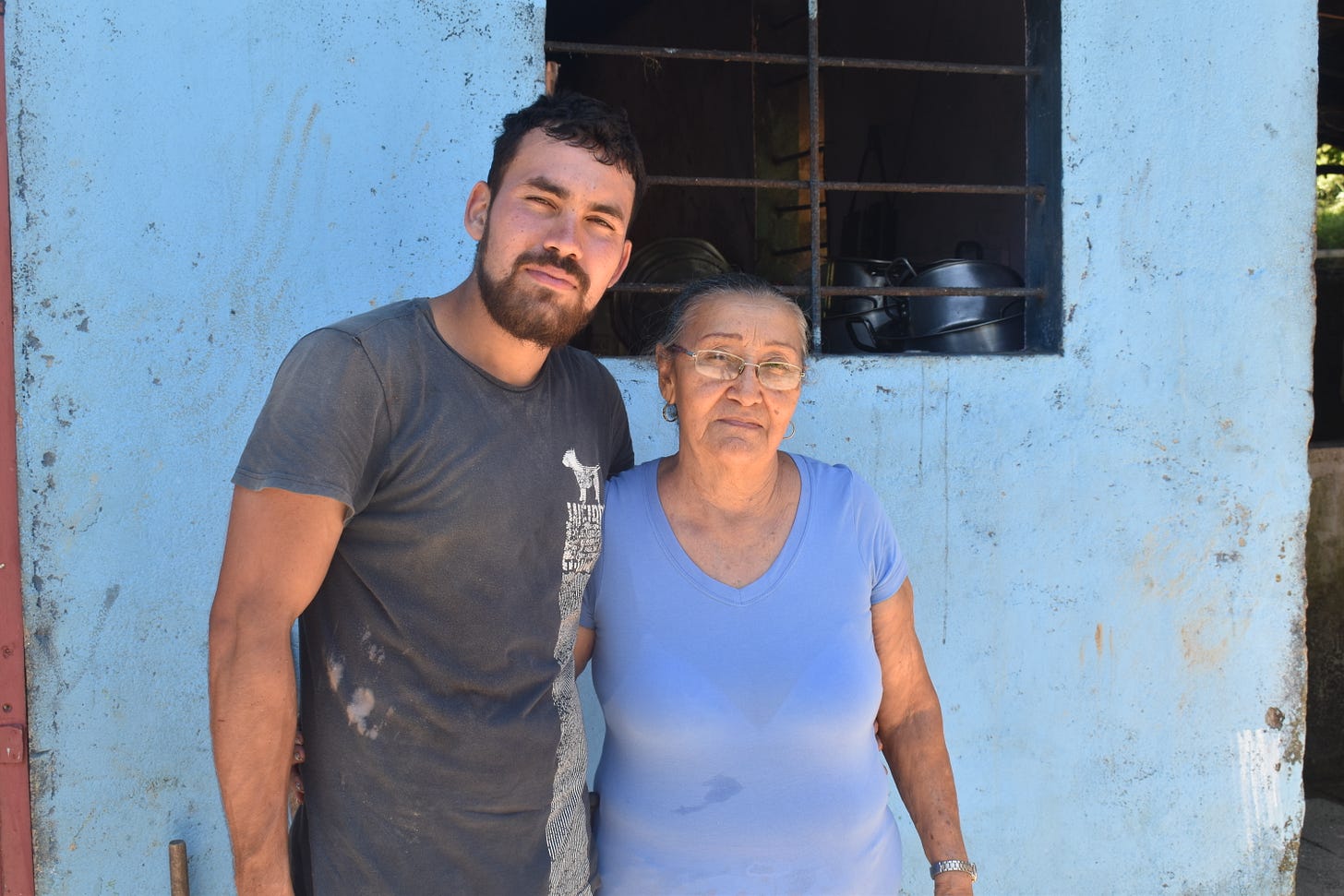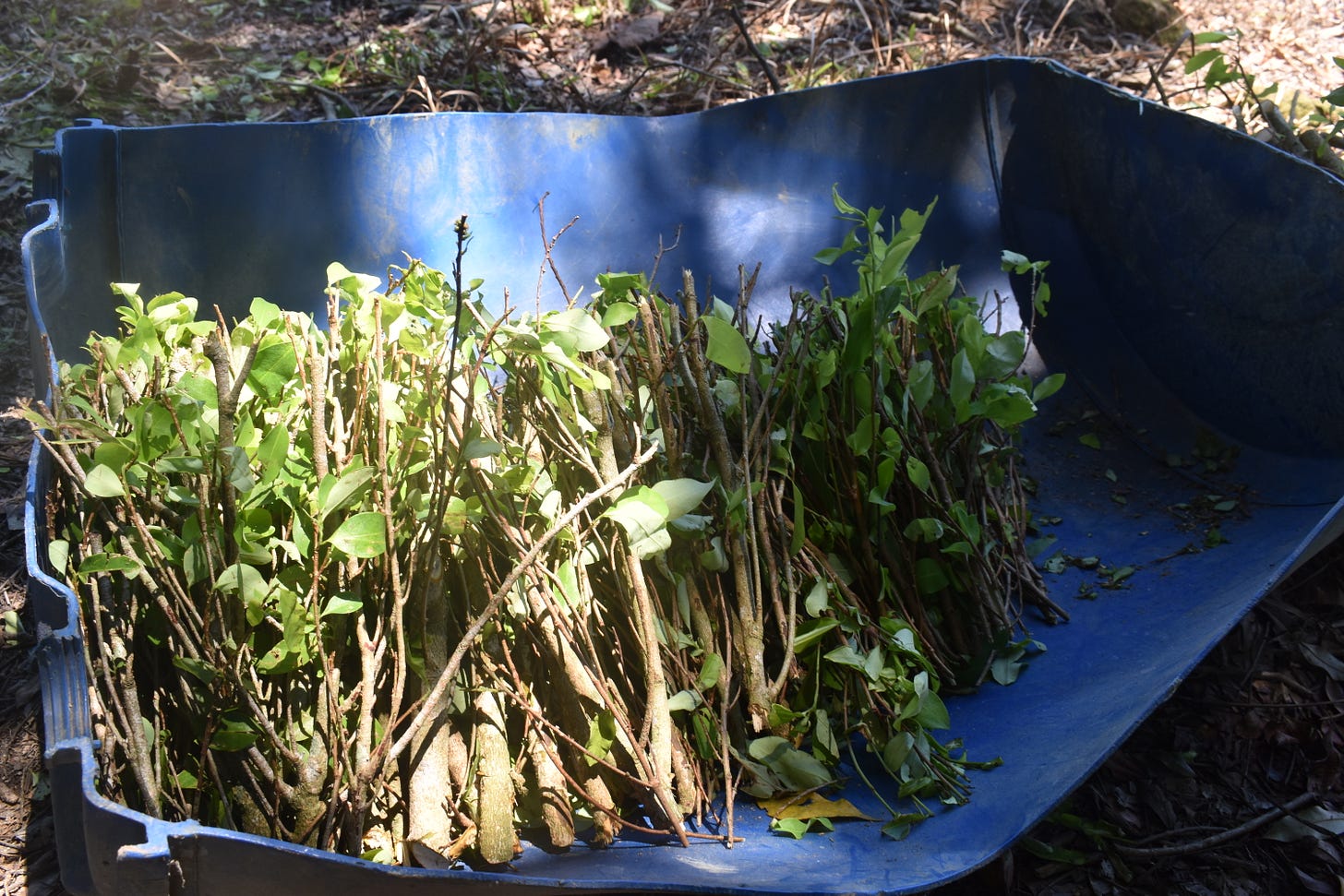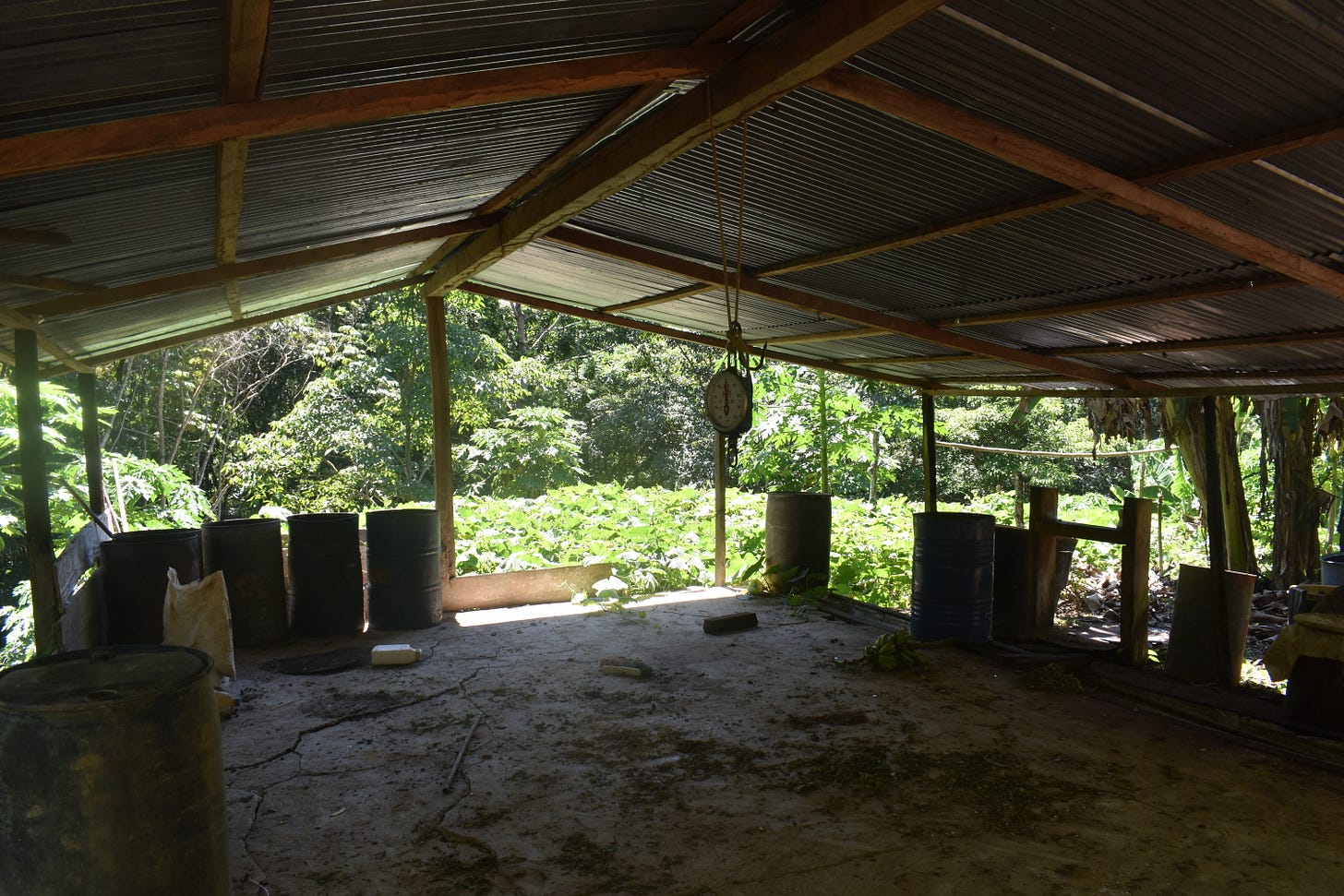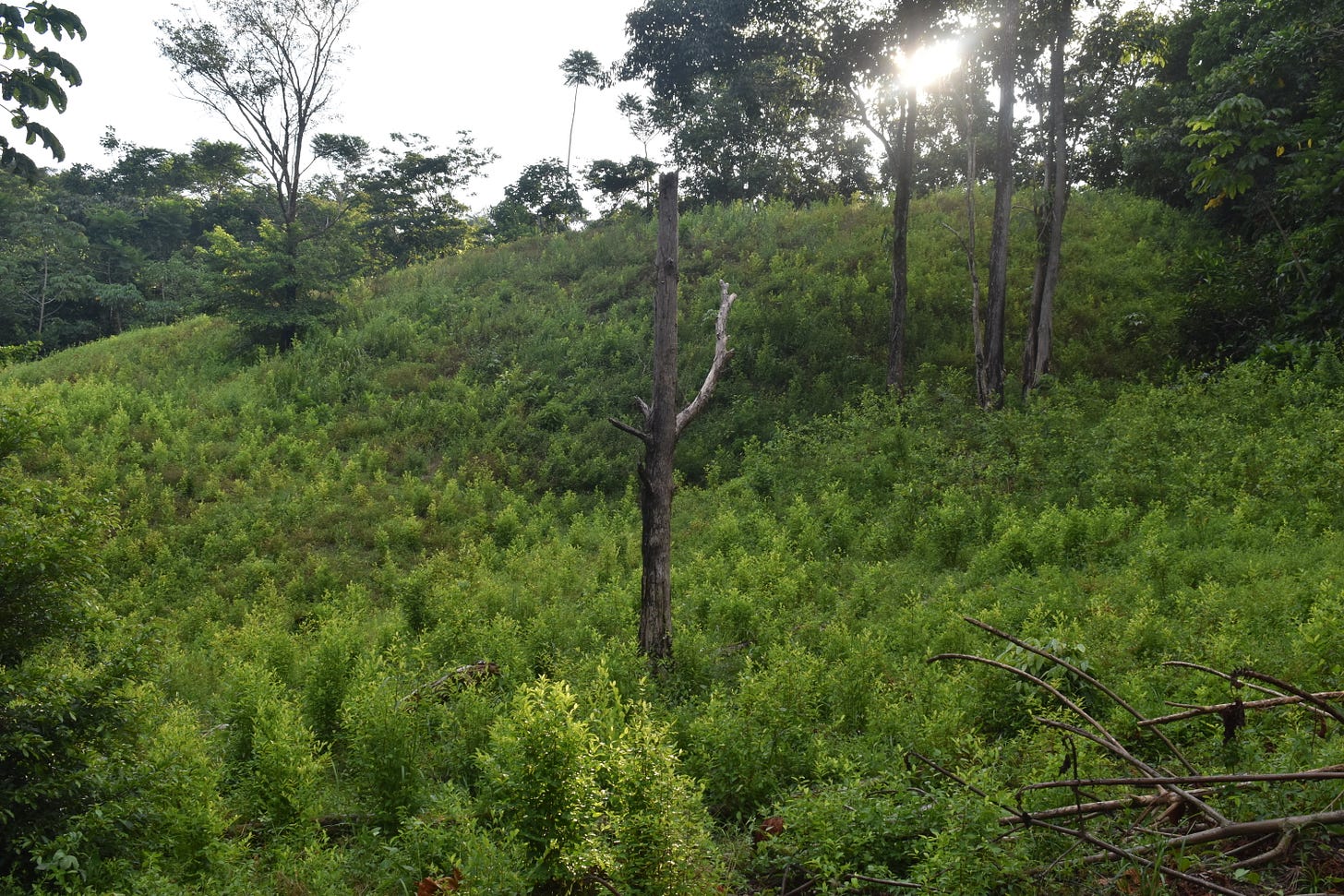Colombia’s cocaine market has collapsed, say farmers
Drop in sales allegedly causing humanitarian crises in coca-growing regions
Welcome back pirates!
Before we get into this week’s newsletter, an announcement. Our longtime PWS collaborator, writer, editor and partner-in-crime, has taken over as managing editor of the Buenos Aires Herald!
The Herald, one of the very few media companies in Argentina that was critical of the government during the dictatorship there, officially relaunched today. They couldn’t have made a better choice than Amy to chart the new course of such a storied institution.
We are extremely happy to be able to congratulate Amy on her new position, and the Herald for setting off again into the open seas of LATAM journalism.
Now onto piratical business!
This week, we are extremely pleased to announce the return of Adriaan Alsema , editor of Colombia Reports, for his second guest-writer slot at PWS. This week he takes a look at a very unusual phenomenon in Colombia- a collapse in the commodity market for coca, the raw ingredient in cocaine.
Farmers in coca-producing regions say it is a humanitarian disaster. What is going on, and why? Read on for details.
Colombia’s cocaine market has collapsed, say farmers
Drop in sales allegedly causing humanitarian crises in coca-growing regions
Farmers from multiple parts of Colombia say coca sales, the raw ingredient in producing cocaine, have collapsed after a surge in the production of the illicit drug.
"We've seen a complete collapse of buyers," said Andres Rojas, a coca farmer in Catatumbo, one of the biggest coca-producing regions in the country,"entire crops are going unsold and families are going hungry."
In an interview, coca farmers’ representative Leidy Diaz told radio station RCN that a lack of buyers for cocaine in Catatumbo is causing a food crisis in the region whose economy almost entirely depends on the drug trade.
Rojas explained that in Catatumbo in recent years, many farmers abandoned food crops in favor of growing coca— in part because transporting harvests from remote regions, which often lack transportation infrastructure, to sell in urban centers is cost prohibitive and difficult. But he also said rising coca prices in recent years have structured the local economies around producing the illicit crop, and in the past, the buyers came to them.
Coca growers starving again
The farmers' failure to sell their coca paste, the substance that becomes cocaine after refining, is causing a humanitarian crisis in the region on the border with Venezuela, according to Diaz.
Coca paste has not been purchased for several months and this causes that many families are unable to meet their basic needs, such as food.
COCCAM representative Leidy Diaz
The coca farmers’ claims were confirmed by Holmer Perez of the Catatumbo Peasant association, who told political news website La Silla Vacia that “there hasn’t been a fluid purchase of coca paste. As in, nobody is buying all the paste and what is bought is very little.”
According to La Silla Vacia, other coca-growing regions like the southern Putumayo province and Nariño and Cauca in the southeast are going through a similar crisis.
The coca growers in the northeast and southwest produced more than 60% of Colombia’s cocaine in 2021, according to the United Nations’ Office on Drugs and Crime UNODC.

Slump follows record production
The alleged crisis caused by a lack of demand follows a surge in the cultivation of coca, which in 2021 led to a record potential output of 1,400 metric tons of cocaine, the UNODC said in October last year.
Coca cultivation in Peru, another major cocaine producer, surged 30.6% to 76,158 hectares in 2021, that country’s National Commission for Development and Life without Drugs said a month before.
Bolivia, whose government ended its cooperation with the United States’ Drug Enforcement agency in November, saw the cultivation of coca increase 4% to 30,500 hectares in 2021, according to the UNODC.
The governments of both Colombia and Bolivia said earlier this year that they want the United Nations to remove coca from its list of illicit substances.
War on Drugs good for drug trade?
The alleged crisis follows a major change in the government’s counternarcotics strategy, which dramatically reduced the forced eradication of coca after President Gustavo Petro took office in August last year.
According to the Defense Ministry, police eradicated on average 41 hectares of coca between September and January, which is 36% less than the monthly average reported between March and August when former President Ivan Duque was in office.
Unlike his predecessor, Petro is a vocal opponent of the US- led “War on Drugs,” and has called for the legalization of cocaine as part of what would be a less disastrous approach to drugs and transnational crime.
This would be in line with recommendations made by the Truth Commission, which said in its report on Colombia’s armed conflict that the War on Drugs effectively inflated profits for those involved in the international drugs trade.

Crop substitution urgently needed?
Ever since taking office, Petro has tried to resume the implementation of a crop substitution program that was part of a 2016 peace agreement with the now-defunct guerrilla group FARC.
This crop substitution program called PNIS formally kicked off as part of the peace process in 2017, but was shut down by the Duque administration in 2018.
Consequently, farmers who had voluntarily eradicated their coca plants found themselves on the brink of starvation and said they had no option but to resume the cultivation of coca.
In December, Petro appointed Felipe Tascon to resume the PNIS program in coordination with coca-growing communities.
In January, Tascon had reestablished ties with the representatives of some 99,000 coca-growing families and former guerrillas who had joined the PNIS program, but were left starving by Duque.
Petro ordered the National Planning Department to allocate $354.5 million (COP1.7 trillion) to comply with pending obligations with PNIS participants and the execution of economic development plans in coca-growing regions before the end of the year, said Camilo Vetina, the director of the Colombia Peace Fund on Thursday.
Opposition to counternarcotics
Vetina’s announcement that the government would allocate funds to comply with the 2016 peace deal was immediately rejected by Prosecutor General Francisco Barbosa. Barbosa has faced numerous corruption allegations, as well as been accused of covering up military human rights abuses during the civil war.
The chief prosecutor is no member of the executive branch, but has been one of the biggest opponents of the peace process.
The United Nations said in 2021 that Barbosa failed to effectively investigate the mass killing of participants in the peace process.
Paradoxically, the chief prosecutor has also failed to investigate alleged drug traffickers and allegedly corrupt politicians who have also opposed the peace process.
According to the Truth Commission, the prosecution’s failure to effectively dismantle drug trafficking organizations is one of the main threats to peace in Colombia.

The Big Headlines in LATAM
This week Salvador was once again in the news, and thankfully, not because of its attention-hungry president, but rather an abortion case that will likely have ramifications throughout all of Central America. Beatriz, a young Salvadoran woman was denied an abortion despite the fact that her fetus was malformed, and challenged the ruling under the Inter-American Court of Human Rights Council, of which El Salvador is a member. The Court held the first public hearing Wednesday to evaluate whether the Salvadoran State's decision violated Beatriz's integrity and rights as a citizen of a country that is signatory to the treaty.
El Salvador has the strictest regulations in the region against the interruption of pregnancy as it prohibits all types of interruptions, even if the pregnancy puts the mother's life at risk or is the result of rape or incest.
New data in Costa Rica has shown an large long-term increase in crime. homicides have increased 66% in the last decade. According to official data, reports of assaults rose 19.5% between 2021 and 2022; those of home robberies by 15%. And 2022 was the most violent year in the country's history.
Politicians have been battered by the public over the increasing insecurity, and as we at PWS have discussed before, pressure to emulate El Salvador’s draconian approach to crime may be gaining support.
Venezuela experienced an internal crisis due to one of the key figures of the Government, Tareck El Aissami. The minister who controlled the state-owned oil company, PDVSA since 2020, has been involved in a corruption case in which more than 3 billion dollars have been lost.
Some experts suggest the graft accusations are merely cover for a larger power struggle within Maduro’s party as they try to normalize relations with the US in the hopes of selling Uncle Sam oil again.
Last Sunday, March 18, a strong earthquake of magnitude 6.8 was registered in Ecuador, leaving around 15 people dead and hundreds injured. The epicenter of the earthquake was in the Ecuadorian municipality of Balao and it extended to certain areas of neighboring Peru. At least 360 buildings were affected by the earthquake in Ecuador, according to the government. Several presidents of countries such as Brazil have extended their solidarity and even Pope Francis referred to the tragedy.
Spanish word of the week
Chigüiro- Colombian Spanish term for Capybara
You may have noticed that we at PWS are huge fans of Capybaras. These adorable, gentle peace-makers are common throughout most of Latin America. And they are our friends <3
But we have noticed that when we talk about Chigüiros on social media, Spanish speakers from other countries often try to correct our vocabulary. And they are right!
But so are we! Capybaras have dozens of names in Latin America, depending on the country where they live. But we know at PWS, they have only one name that really matters: heroes





Whoa, interesting to connect a reduction in the war on drugs to a reduction in prices to a reduction in ingredients sold, leading to a humanitarian crisis. It seems like no matter what you do, you end up causing some kind of suffering somewhere. :/
Would you say that (either with or without PNIS) in the long run, farmers can realistically return to producing food instead of coca paste, or are the prices they can get for anything else just too low to be able to live off it?
Also - allllll the best to Amy!
And yay capybara map! \o/
"The farmers’ failure sell their coca paste" is a typo for "The farmers' failure to sell their coca paste."